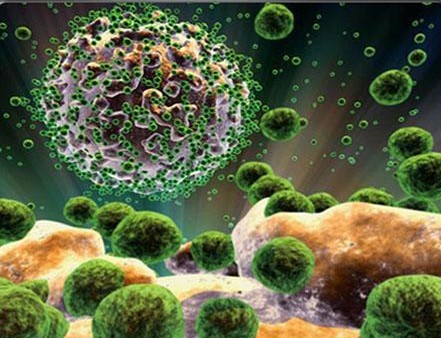It is reported that some researchers from KCL have found a new gene named MX2, which can restrain the spread of AIDS virus to a large degree. Those researchers said the discovery of this unique gene function will pave the way for developing more effective and less toxic treatments in AIDS. Relevant studies have been published in the latest issue of Nature.
 Practically, it can be regarded as the first time for researchers to recognize MX2’s important role in suppressing AIDS virus. In addition, they have experimentally tested the practical effect of the gene, and they have found the AIDS virus would replicate and spread when the MX2 was in silence. However, when the MX2 was in full expression, such virus couldn’t replicate. There wouldn’t be new viruses as well. Certainly, this amazing discovery is exciting. Professor Mike from KCL (he guided the study) pointed out a fact that the new discovery would be helpful in making us understand the reactive way between AIDS virus and immune system better. Moreover, it also offers a better opportunity to develop new therapies in future.
Practically, it can be regarded as the first time for researchers to recognize MX2’s important role in suppressing AIDS virus. In addition, they have experimentally tested the practical effect of the gene, and they have found the AIDS virus would replicate and spread when the MX2 was in silence. However, when the MX2 was in full expression, such virus couldn’t replicate. There wouldn’t be new viruses as well. Certainly, this amazing discovery is exciting. Professor Mike from KCL (he guided the study) pointed out a fact that the new discovery would be helpful in making us understand the reactive way between AIDS virus and immune system better. Moreover, it also offers a better opportunity to develop new therapies in future.
Although we know little about MX2, we have already realized the potential of this gene in fighting against viruses, which could be a crucial weakness in the life circle of AIDS virus. As is known, patients with AIDS virus can live much longer under the support of modern treatment. Whereas, we cannot deny drugs would place some serious side effects on our body. And the drug resistance caused by long-term use of drugs is not a small trouble any more. In this way, it is urgent to find a new way to mobilize the body’s natural defense mechanisms, which means MX2 will become a key role. Clearly, developing molecules with similar effects as MX2 can also help activate MX2 drugs. Generally, both ways are feasible.
In fact, we are feared of AIDS virus mainly because of its serious infectiousness. Given the fact, AIDS virus has been considered as one of our mortal enemy, which requires more attention in recent years. Nowadays, more and more scientists make great efforts in anti-AIDS researches such as the new MX2. Specifically, we should also pay attention to the development of new drugs, for the purpose of stimulating our body’s natural immunity against the viruses. Maybe such line of thought can be used in the treatment of other diseases as well.
